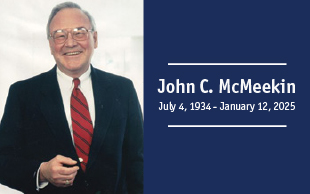Q&A with Vanessa Briggs, Executive Director, Health Promotion Council
 Vanessa Briggs, executive director of PHMC affiliate Health Promotion Council (HPC) and a registered dietician and licensed nutritionist, joined 20 delegates on an 11-day fall trip to the Republic of South Africa, including Johannesburg and Cape Town, as a part of the Nutritional Health and Wellness People to People Citizen Ambassador Delegation. President Dwight D. Eisenhower created the program over 50 years ago. Since then, more than 400,000 professionals have participated in networking visits on all seven continents. The group’s itinerary included 30 hours of professional interaction through meetings and site visits, balanced by a range of social activities and cultural excursions. Briggs met officials from South Africa’s National Department of Health as well as medical researchers and nutritionists, among others. DIRECTIONS asked her about the experience.
Vanessa Briggs, executive director of PHMC affiliate Health Promotion Council (HPC) and a registered dietician and licensed nutritionist, joined 20 delegates on an 11-day fall trip to the Republic of South Africa, including Johannesburg and Cape Town, as a part of the Nutritional Health and Wellness People to People Citizen Ambassador Delegation. President Dwight D. Eisenhower created the program over 50 years ago. Since then, more than 400,000 professionals have participated in networking visits on all seven continents. The group’s itinerary included 30 hours of professional interaction through meetings and site visits, balanced by a range of social activities and cultural excursions. Briggs met officials from South Africa’s National Department of Health as well as medical researchers and nutritionists, among others. DIRECTIONS asked her about the experience.
![]() How did you get the opportunity to visit South Africa as a public health representative?
How did you get the opportunity to visit South Africa as a public health representative?
![]() I received a letter of invitation to participate in the ambassador program because of my association with the American Dietetic Association as well as my professional background in nutrition.
I received a letter of invitation to participate in the ambassador program because of my association with the American Dietetic Association as well as my professional background in nutrition.
![]() What did you hope
What did you hope
to take away from the trip?
![]() I thought of this trip as an opportunity to do peer-to-peer learning with my counterparts on a different continent. Given the work I am currently doing in public health in terms of policy, direct service, infrastructure and capacity building, I felt I could bring a lot of value and share a lot of my experience in public health.
I thought of this trip as an opportunity to do peer-to-peer learning with my counterparts on a different continent. Given the work I am currently doing in public health in terms of policy, direct service, infrastructure and capacity building, I felt I could bring a lot of value and share a lot of my experience in public health.
![]() Who else went
Who else went
on the trip with you?
![]() There were a varied group of individuals attending, but the bulk of the delegates are registered dieticians who practice predominantly in hospital, long-term care and childhood nutrition settings. The group was under the guidance of Rita Mitchell, RD, past president of the California Dietetic Association. I was able to bring a public health perspective that straddles both hunger/malnutrition issues and risk factors for chronic disease, as well as issues of obesity.
There were a varied group of individuals attending, but the bulk of the delegates are registered dieticians who practice predominantly in hospital, long-term care and childhood nutrition settings. The group was under the guidance of Rita Mitchell, RD, past president of the California Dietetic Association. I was able to bring a public health perspective that straddles both hunger/malnutrition issues and risk factors for chronic disease, as well as issues of obesity.
![]() What are the benefits
What are the benefits
of a trip like this?
![]() It gives public health professionals an insight into policy from an international perspective. For instance, how we in the United States handle food policies that support food insecurity in comparison with how another country handles the same policy.
It gives public health professionals an insight into policy from an international perspective. For instance, how we in the United States handle food policies that support food insecurity in comparison with how another country handles the same policy.
![]() What was your
What was your
favorite part of the trip?
![]() My favorite part was the interaction with colleagues who focused on initiatives similar to HPC's and understanding how the cultural and political climate, coupled with the insurmountable poverty and rampant prevalence of HIV/AIDS, affects their ability to create and implement programs and services.
My favorite part was the interaction with colleagues who focused on initiatives similar to HPC's and understanding how the cultural and political climate, coupled with the insurmountable poverty and rampant prevalence of HIV/AIDS, affects their ability to create and implement programs and services.
![]() As you prepared for the trip,
As you prepared for the trip,
what were your expectations?
![]() I went into it with an open mind, recognizing that we were going to a different country. I anticipated professional development and that I would meet colleagues doing similar work in nutrition and wellness —all of that certainly occurred
I went into it with an open mind, recognizing that we were going to a different country. I anticipated professional development and that I would meet colleagues doing similar work in nutrition and wellness —all of that certainly occurred
![]() What surprised you
What surprised you
most about South Africa?
![]() I was not prepared for how varied public health programs were between class and racial groups in the country. I also was not prepared for the magnitude of poverty South Africans deal with. Over there, there are obstacles to human rights and basic needs, such as housing with sufficient running water and electricity, that we in the US might take for granted.
I was not prepared for how varied public health programs were between class and racial groups in the country. I also was not prepared for the magnitude of poverty South Africans deal with. Over there, there are obstacles to human rights and basic needs, such as housing with sufficient running water and electricity, that we in the US might take for granted.
![]() What was on your mind when you returned to HPC from South Africa?
What was on your mind when you returned to HPC from South Africa?
![]() PC’s mission consists of health education advocacy, whereas in South Africa the main emphasis is on human rights and basic needs. At HPC, we are about health promotion, disease management and prevention, while in South Africa, they just want to ensure that people have food. Here in the US, we are much more advanced in our public health initiatives. In South Africa, health education is important, but feeding people is the focus. However, the recent economic crisis has affected public health in such a way that here in the US 49 million people are now food-insecure.
PC’s mission consists of health education advocacy, whereas in South Africa the main emphasis is on human rights and basic needs. At HPC, we are about health promotion, disease management and prevention, while in South Africa, they just want to ensure that people have food. Here in the US, we are much more advanced in our public health initiatives. In South Africa, health education is important, but feeding people is the focus. However, the recent economic crisis has affected public health in such a way that here in the US 49 million people are now food-insecure.
![]() Would you recommend a trip like this to your public health colleagues?
Would you recommend a trip like this to your public health colleagues?
![]() I would certainly recommend a trip like this to others. It allows people here to gain a better understanding of global health and compare and contrast public health strategies; it gives one a global context. As much as we struggle with garnering adequate funding to address health disparities, a trip such as this makes you appreciate how far advanced we are when it comes to public health initiatives. On the other hand, a trip like this also allows one to see how closely aligned we are in some of our interventions. For instance, at the University of Stellenbosch in Cape Town, I was able to network with colleagues doing similar work to our Philadelphia Urban Food and Fitness Alliance using community-based participating approaches to address food insecurity and childhood obesity.
I would certainly recommend a trip like this to others. It allows people here to gain a better understanding of global health and compare and contrast public health strategies; it gives one a global context. As much as we struggle with garnering adequate funding to address health disparities, a trip such as this makes you appreciate how far advanced we are when it comes to public health initiatives. On the other hand, a trip like this also allows one to see how closely aligned we are in some of our interventions. For instance, at the University of Stellenbosch in Cape Town, I was able to network with colleagues doing similar work to our Philadelphia Urban Food and Fitness Alliance using community-based participating approaches to address food insecurity and childhood obesity.





